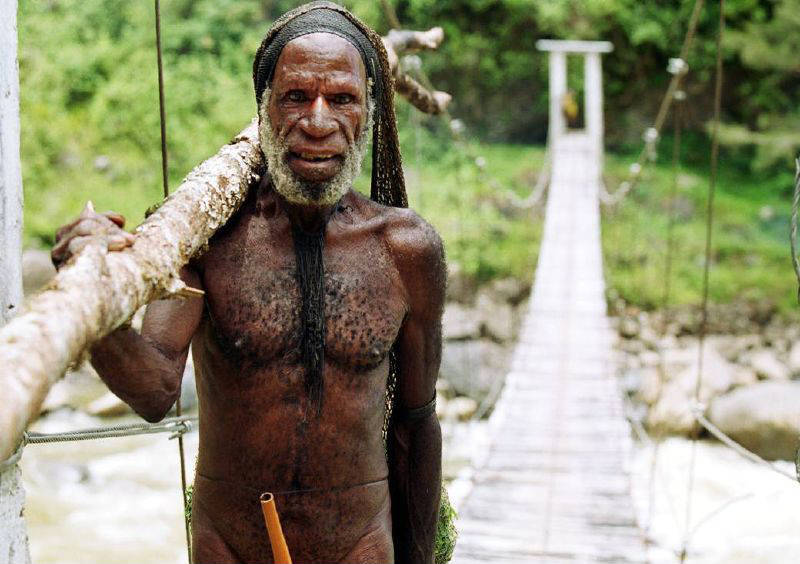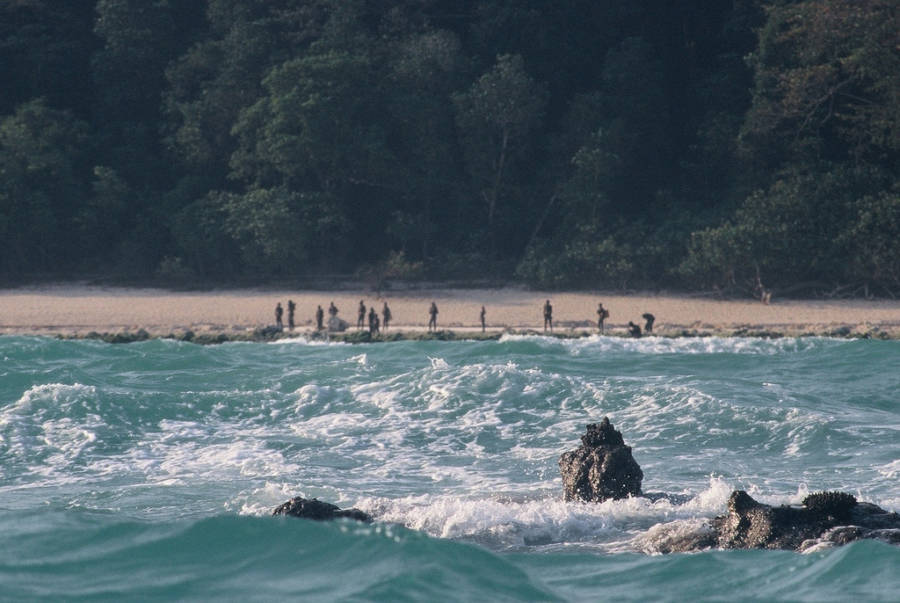From the Sentinelese to the Korowai, these uncontacted tribes know almost nothing of the world we take for granted.

Wikimedia CommonsA member of the Dani tribe of Papua, New Guinea. This tribe had been unknown to Westerners until the 1930s.
By most estimates, there are more than 100 uncontacted tribes of indigenous peoples around the world.
While relatively small, they are whole communities that know little to nothing of the invention of the automobile or the radio — let alone the internet. They roam largely inside the vast Amazon rainforest, nude (or close to it), hunting and gathering in order to survive.
They raise families and honor their respective tribe’s traditions, from ritual body modification to the barbaric extreme of cannibalism, no matter how unorthodox any of it may seem to the rest of us.
We may find it difficult to believe that anyone in this modern era can not only live completely “off the grid” but be completely unaware of its existence. Nevertheless, these four uncontacted tribes, from the Sentinelese to the Korowai, have only very rare — if any — contact with the rest of the world.
Uncontacted Tribes: The Sentinelese

christiancaron2000/FlickrThe little-seen tribe that lives on North Sentinel Island in the Indian Ocean.
On the tiny North Sentinel Island in the Indian Ocean, you’ll find the Sentinelese. We call them that because we have no idea what they call themselves.
This tribe has no developed agriculture and still relies on hunting and gathering as most humans did some 10,000 years ago. And the Sentinelese seem to want absolutely nothing to do with any of us.
They’ve expressed as much by barraging anyone and anything that ever got close to them with spears and arrows. Marco Polo wrote in one of his journals: “They are a most violent and cruel generation who seem to eat everybody they catch.” Now, the tribe’s purported cannibalism has not been proven — but the reason why we can’t prove it is also pretty disturbing.
In 2006, Indian fishermen Sunder Raj and Pandit Tiwari found their boat in Sentinelese territory. Unfortunately, they didn’t live to tell about it. But others in the boat who witnessed the two fishermen’s murders said the tribal warriors who attacked were nearly naked and wielded axes.
Helicopters sent to investigate hovered over the island, and the whirring blades moved the sand enough to uncover the fishermen’s machete-marred (but intact) bodies in shallow graves. The Sentinelese saw the helicopter and immediately began attacking it, too. Message received, loud and clear.





